No Results Found
The page you requested could not be found. Try refining your search, or use the navigation above to locate the post.
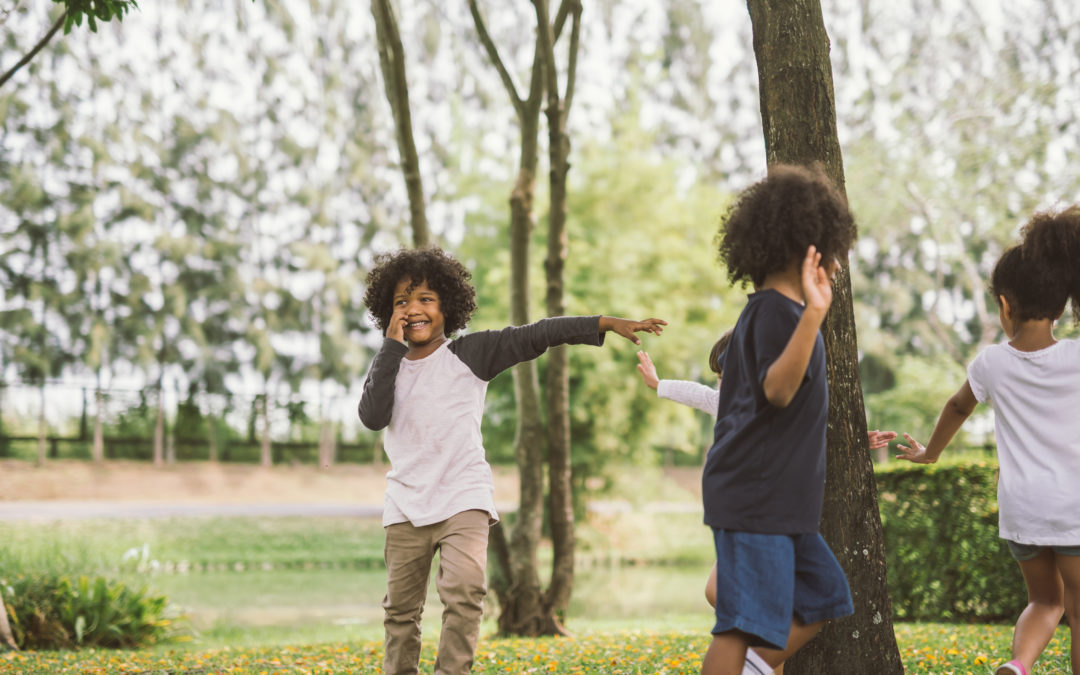

So, a simple cheap way to help your kids improve all life skills and strengthen mental wellbeing. Too good to be true?
Well, this piece of research, just out, finds a fascinating correlation with mental health and kids. This correlation was also surprising – some things kids do, and their personality traits, we can assume could be related to positive mental health. Traits such as extraversion meaning you are likely to bond closer to people and hence this can provide support networks. So, what did these researchers around Helen Dodd from the University of Essex in the UK find?
The researchers surveyed 2’346 parents pre covid and during the first covid lockdown in the UK with questions on general mental health and mood. They found that those kids who spend more time playing outside in more unstructured and adventurous games had fewer “internalising” problems i.e. anxiety and depression during the first covid lockdown.
What’s more this effect was more pronounced in children from lower income families.
This highlights the importance of play – I have written in other places of how beneficial play is for multiple reasons. Basically, it is one of the best ways to build your brain. But importantly it is free and actually easily accessible for most people.
Adventurous play according to this also seems to be important because it uses cognitive skills that are very important such as exploration but also risk balancing and likely also failure and recovery and trying again. Critical life skills – but this also seems to have a buffer against mental health issues and that is really important to note.
This shows that some of things we can do as a society are cheap and easily accessible – but society can also encourage this through giving access to parks and well-designed play areas.
So as a parent you should be encouraging your kids to get out and play – and hey, there’s nothing wrong with you adults doing it also!

Andy is author of leading brains Review, Neuroleadership, and multiple other books. He has been intensively involved in writing and research into neuroleadership and is considered one of Europe’s leading experts. He is also a well-known public speaker speaking on the brain and human behaviour.
Andy is also a masters athlete (middle distance running) and competes regularly at international competitions (and holds a few national records in his age category).
Helen F. Dodd, Rachel J. Nesbit, Lily FitzGibbon.
Child’s Play: Examining the Association Between Time Spent Playing and Child Mental Health.
Child Psychiatry & Human Development, 2022;
DOI: 10.1007/s10578-022-01363-2
The page you requested could not be found. Try refining your search, or use the navigation above to locate the post.
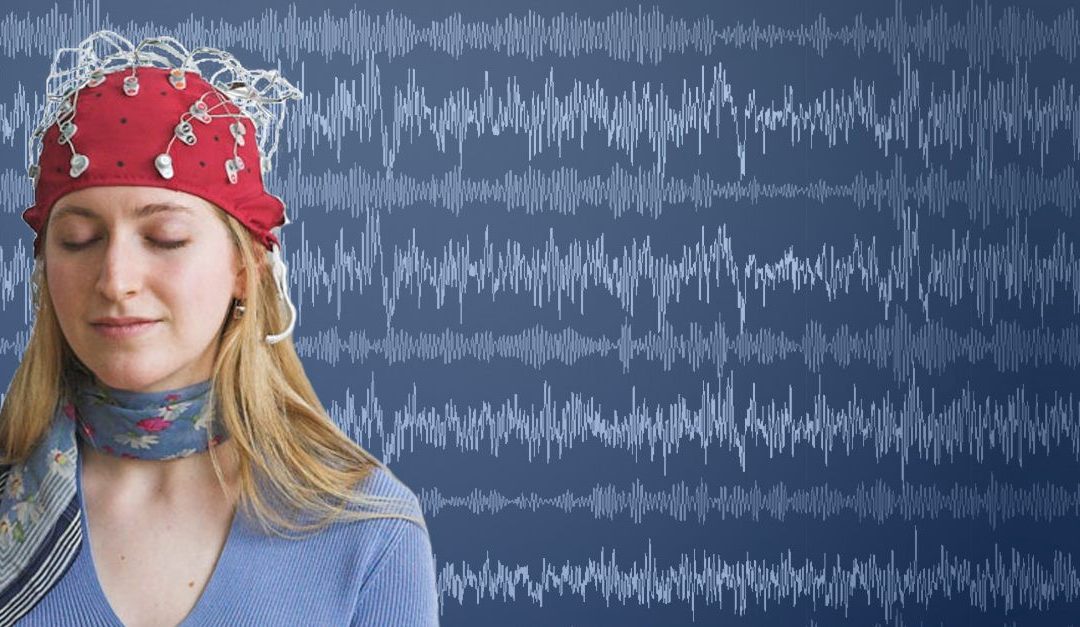
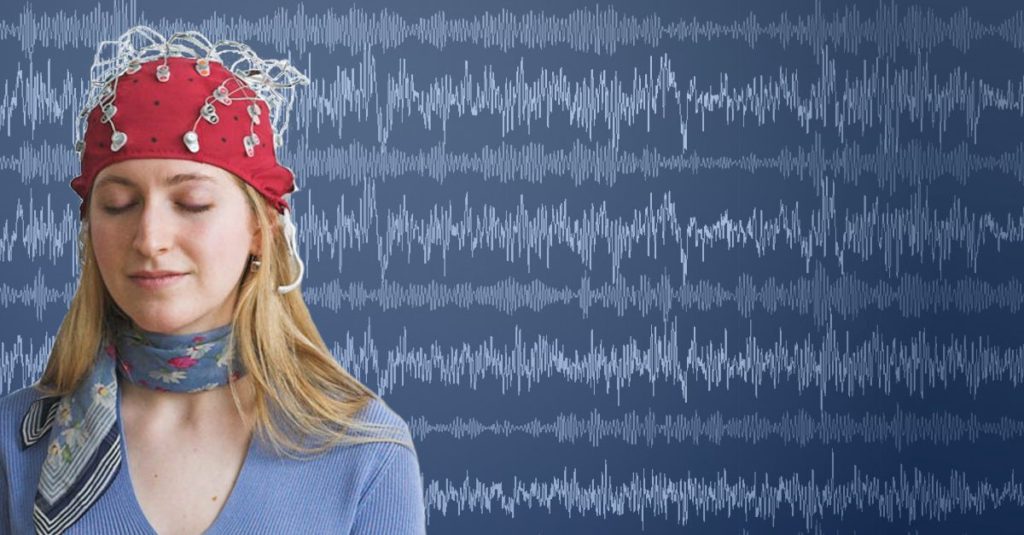
M editation can actually change your brain. “Oh, no it can’t!” say these researchers. “Oh, yes it can!” say a lot of other researchers.
Does this start to sound confusing?
Well, it does because there has been plenty of evidence that meditation has plenty of positive effects on wellbeing and particularly in stress reduction and this has been reported to leave structural traces in the brain.
So, who is right?
To answer that question, we have to understand what we are trying to measure and how we are doing this. For example, a bunch of meditation researchers noted in 2018 that there is little consistency in meditation research. Why so – well the nature of meditation is that you could be doing different types of meditation for different periods of times with different population groups: experienced meditators, novices, those who are stressed, etc, etc.
On top of this once you start doing brain scanning studies these become very expensive, which therefore needs funding, and sample sizes decrease massively – it takes a long time to scan people.
So, this leaves us with two fundamental problems. First of comparability, and second of sample sizes. These researchers around Richard J. Davidson at University of Wisconsin-Madison aimed to resolve this. They recruited 218 (a much larger group than in most meditation studies) people with no previous experience of meditation or mindfulness, and they all had brain scans. They were then randomly assigned to one of three groups.
They all then repeated the brain scans. So, what did they find?
They found no significant changes to the brain of those in the intervention groups.
Disappointing right? Well, not really and the researchers themselves note why:
So does meditation change the brain? Well, the basic paradigm of neuroscience is what “what fires together, wires together” which translates as if you do something you build new connections, or strengthen existing connections. So yes, if you do something different it will leave a trace in the brain over time. But this applies to everything: if you start playing tennis, chess, reading more, playing cognitive games, etc. etc. These will all change your brain if it is new, and will build and strengthen specific circuits. How it changes is another question, and this is likely very individualised.
But there are also clear health benefits, and this in itself is a good thing. But as the above research also noted this doesn’t have to be meditation.
So, my advice to you is: if you enjoy meditation, do it. You will be reaping multiple benefits. If you don’t, make sure you focus on other ways to manage your health – because that will lead to higher wellbeing – and a happier life. And who doesn’t want that.

Andy is author of leading brains Review, Neuroleadership, and multiple other books. He has been intensively involved in writing and research into neuroleadership and is considered one of Europe’s leading experts. He is also a well-known public speaker speaking on the brain and human behaviour.
Andy is also a masters athlete (middle distance running) and competes regularly at international competitions (and holds a few national records in his age category).
Tammi R. A. Kral, Kaley Davis, Cole Korponay, Matthew J. Hirshberg, Rachel Hoel, Lawrence Y. Tello, Robin I. Goldman, Melissa A. Rosenkranz, Antoine Lutz, Richard J. Davidson.
Absence of structural brain changes from mindfulness-based stress reduction: Two combined randomized controlled trials.
Science Advances, 2022; 8 (20)
DOI: 10.1126/sciadv.abk3316
o, a simple cheap way to help your kids improve all life skills and strengthen mental wellbeing. Too good to be true? Well, this piece of research, just out, finds a fascinating correlation with mental health and kids. This correlation was...
editation can actually change your brain. "Oh, no it can’t!" say these researchers. "Oh, yes it can!" say a lot of other researchers. Does this start to sound confusing? Well, it does because there has been plenty of evidence that...
Quick HitsDaily brief research updates from the cognitive sciences ou may assume, logically at first glance, that not having contact to people is the most important factor in loneliness. And obviously this does have a large impact — but...
his study recently out analyses a fascinating episode in China at the start of the pandemic. A group of international musicians in Shenzhen produced a viral hit in China. This was a cover version of Michael Jackson's “you are not alone”...
usiness and executives in those businesses are more than keen to get a competitive advantage. To this end they invest heavily in technology and getting the right people to do the job. But, I am sure, we are all more than aware that the work...
Quick HitsDaily brief research updates from the cognitive sciences ho wouldn’t want to keep their memory when aging?! Well, researchers have just announced some promising results in mice enabling them to keep their memories and avoid some of...
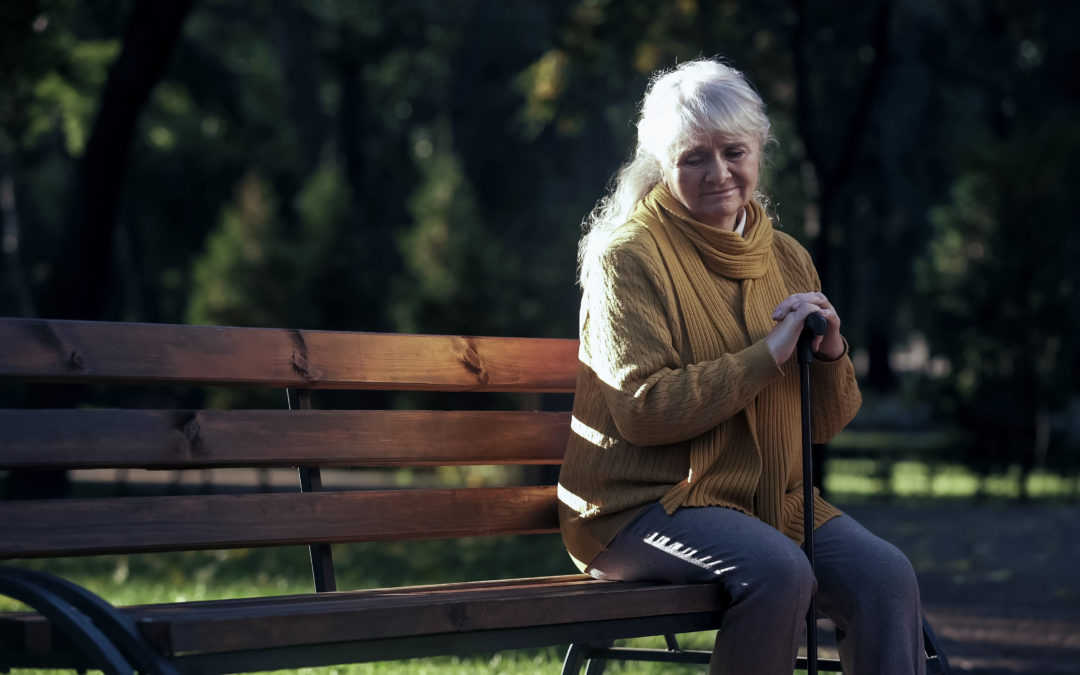
Quick Hits
Daily brief research updates from the cognitive sciences

You may assume, logically at first glance, that not having contact to people is the most important factor in loneliness. And obviously this does have a large impact — but there are a number of paradoxes because we know some people can be alone and feel very good with themselves — this is also known as the wisdom-loneliness paradox.
In this paradox we know that people who rate highly on wisdom seem to be pretty immune to the negative sides of loneliness and can be alone and happy. There are a number of reasons that we know influence this, one is a sense of meaning and purpose in life but also of being connected to the greater good. Another intriguing factor is that of our gut microbiome which correlates to loneliness, or not — yes you read that correctly. Read more here.
We also know from brain scanning that lonely people also feel more threatened. So, it is more complicated than just having contact to people — which is obviously still very important.
And this is where this newly released research out of the Vienna University of Economics and Business in Austria led by Sophie Buthmuller, is very interesting. What Guthmuller did is analyse data from individuals (from SHARE — a cross-national Survey on Health, Ageing, and Retirement) to see which factors correlated highest with loneliness in those over 50. And the results may surprise you — to a degree:
There are however two other factors that contribute to risk of loneliness, and these are
So, the research confirms some of the obvious that social support is important but also that ill-health is a key contributing factor and that there are other risk factors which could allow earlier identification of those at risk and mitigation actions.
My personality at least should offer me some protection and my modest wisdom!

Andy is author of leading brains Review, Neuroleadership, and multiple other books. He has been intensively involved in writing and research into neuroleadership and is considered one of Europe’s leading experts. He is also a well-known public speaker speaking on the brain and human behaviour.
Andy is also a masters athlete (middle distance running) and competes regularly at international competitions (and holds a few national records in his age category).
Sophie Guthmuller.
Loneliness among older adults in Europe: The relative importance of early and later life conditions.
PLOS ONE, 2022; 17 (5): e0267562
DOI: 10.1371/journal.pone.0267562
o, a simple cheap way to help your kids improve all life skills and strengthen mental wellbeing. Too good to be true? Well, this piece of research, just out, finds a fascinating correlation with mental health and kids. This correlation was...
editation can actually change your brain. "Oh, no it can’t!" say these researchers. "Oh, yes it can!" say a lot of other researchers. Does this start to sound confusing? Well, it does because there has been plenty of evidence that...
Quick HitsDaily brief research updates from the cognitive sciences ou may assume, logically at first glance, that not having contact to people is the most important factor in loneliness. And obviously this does have a large impact — but...
his study recently out analyses a fascinating episode in China at the start of the pandemic. A group of international musicians in Shenzhen produced a viral hit in China. This was a cover version of Michael Jackson's “you are not alone”...
usiness and executives in those businesses are more than keen to get a competitive advantage. To this end they invest heavily in technology and getting the right people to do the job. But, I am sure, we are all more than aware that the work...
Quick HitsDaily brief research updates from the cognitive sciences ho wouldn’t want to keep their memory when aging?! Well, researchers have just announced some promising results in mice enabling them to keep their memories and avoid some of...


This study recently out analyses a fascinating episode in China at the start of the pandemic.
A group of international musicians in Shenzhen produced a viral hit in China. This was a cover version of Michael Jackson’s “you are not alone” this was particularly suitable because it focused on multiple aspects of distress that the population was going through such as encouragement, empathy, but also positivity, and hope.
This was posted on the Chinese social media service WeChat, which has 1.2 billion users, and became a viral hit but also a source of encouragement and collective mourning for millions and millions of Chinese.
Lydia Giménez-Llort, professor of the Department of Psychiatry and Forensic Medicine and researcher at the INC-UAB researched and analyzed how this impacted the population. What she found was that this particular music, and indicating suitable music in general, was very helpful in helping the population process their collective grief and shock at the start of the pandemic when millions of people were in a collective strict lockdown in China.
She also found that’s the music helped to guide people through grief stages such as that proposed by Kübler Ross when people go through different phases of grief or that by Taylor of “tend and befriend”. What is also noticeable in this particular example is that the musicians were international musicians and the song itself was an international song suggesting that it is the music itself and the message that is in the music that is most effective.
This goes some way to explain why us human beings are naturally drawn to music in times of grief, but it also highlights how this is an important part of the healing process and something that combined collectives and society can benefit from and so it is not to be underestimated.
Some people do claim that music is a basic need and though this doesn’t prove it, it does show that music is very important in our lives and can do many things much more important than just “entertainment”.

Andy is author of leading brains Review, Neuroleadership, and multiple other books. He has been intensively involved in writing and research into neuroleadership and is considered one of Europe’s leading experts. He is also a well-known public speaker speaking on the brain and human behaviour.
Andy is also a masters athlete (middle distance running) and competes regularly at international competitions (and holds a few national records in his age category).
Lydia Giménez-Llort
‘You’re Not Alone for China’: The First Song in Times of COVID-19 to Keep the Faith in a World Crying in Silence.
Behavioral Sciences, 2022; 12 (4): 88
DOI: 10.3390/bs12040088
o, a simple cheap way to help your kids improve all life skills and strengthen mental wellbeing. Too good to be true? Well, this piece of research, just out, finds a fascinating correlation with mental health and kids. This correlation was...
editation can actually change your brain. "Oh, no it can’t!" say these researchers. "Oh, yes it can!" say a lot of other researchers. Does this start to sound confusing? Well, it does because there has been plenty of evidence that...
Quick HitsDaily brief research updates from the cognitive sciences ou may assume, logically at first glance, that not having contact to people is the most important factor in loneliness. And obviously this does have a large impact — but...
his study recently out analyses a fascinating episode in China at the start of the pandemic. A group of international musicians in Shenzhen produced a viral hit in China. This was a cover version of Michael Jackson's “you are not alone”...
usiness and executives in those businesses are more than keen to get a competitive advantage. To this end they invest heavily in technology and getting the right people to do the job. But, I am sure, we are all more than aware that the work...
Quick HitsDaily brief research updates from the cognitive sciences ho wouldn’t want to keep their memory when aging?! Well, researchers have just announced some promising results in mice enabling them to keep their memories and avoid some of...


Business and executives in those businesses are more than keen to get a competitive advantage. To this end they invest heavily in technology and getting the right people to do the job.
But, I am sure, we are all more than aware that the work environment is also crucial to high performance. And this study, just out, gives an interesting take from a large dataset on this. The researchers around Alexander McKay at Virginia Commonwealth University analysed data from 11,000 surveys of employees sharing everyday work experiences and rated these into factors that stimulate or inhibit creativity. Creativity being a key metric to getting a competitive advantage for businesses.
Analysing the data showed that they could categorise the types of days that employees had into five categories:
So, in a hypothetical week, employees are in a bad place for half a day, disengaged for another half, in typical work mode for 1.5 days, in optimal work mode for 1.5 days, and spend 1 day in crises mode.
The next question is are these positive days actually better for creativity?
And this was a resounding yes. Those days which are ideal days rated much higher on creativity output but they also note that workers’ perceived creativity and productivity may actually be mismatched. The data for example shows that crises days are not as creative as workers rate them. Another note is that these days don’t average out as I did above nicely mixed up over a week. They tend to occur concurrently, so a toxic day is more likely to follow another toxic day. This can increase stress significantly – this shows that there can be a tendency to get in a rut – a positive one, or a negative one.
This also means it is important to try to manage this proactively.
This is therefore another piece of impressive and solid evidence as to why helping workers to have a good day at work will reap dividends for any business.
So what’s stopping you or your business making this happen?

Andy is author of leading brains Review, Neuroleadership, and multiple other books. He has been intensively involved in writing and research into neuroleadership and is considered one of Europe’s leading experts. He is also a well-known public speaker speaking on the brain and human behaviour.
Andy is also a masters athlete (middle distance running) and competes regularly at international competitions (and holds a few national records in his age category).
Alexander S. McKay, Mayoor Mohan, Christopher S. Reina.
Another day, another chance: Daily workplace experiences and their impact on creativity.
Journal of Product Innovation Management, 2021; 39 (3): 292
DOI: 10.1111/jpim.12573
o, a simple cheap way to help your kids improve all life skills and strengthen mental wellbeing. Too good to be true? Well, this piece of research, just out, finds a fascinating correlation with mental health and kids. This correlation was...
editation can actually change your brain. "Oh, no it can’t!" say these researchers. "Oh, yes it can!" say a lot of other researchers. Does this start to sound confusing? Well, it does because there has been plenty of evidence that...
Quick HitsDaily brief research updates from the cognitive sciences ou may assume, logically at first glance, that not having contact to people is the most important factor in loneliness. And obviously this does have a large impact — but...
his study recently out analyses a fascinating episode in China at the start of the pandemic. A group of international musicians in Shenzhen produced a viral hit in China. This was a cover version of Michael Jackson's “you are not alone”...
usiness and executives in those businesses are more than keen to get a competitive advantage. To this end they invest heavily in technology and getting the right people to do the job. But, I am sure, we are all more than aware that the work...
Quick HitsDaily brief research updates from the cognitive sciences ho wouldn’t want to keep their memory when aging?! Well, researchers have just announced some promising results in mice enabling them to keep their memories and avoid some of...
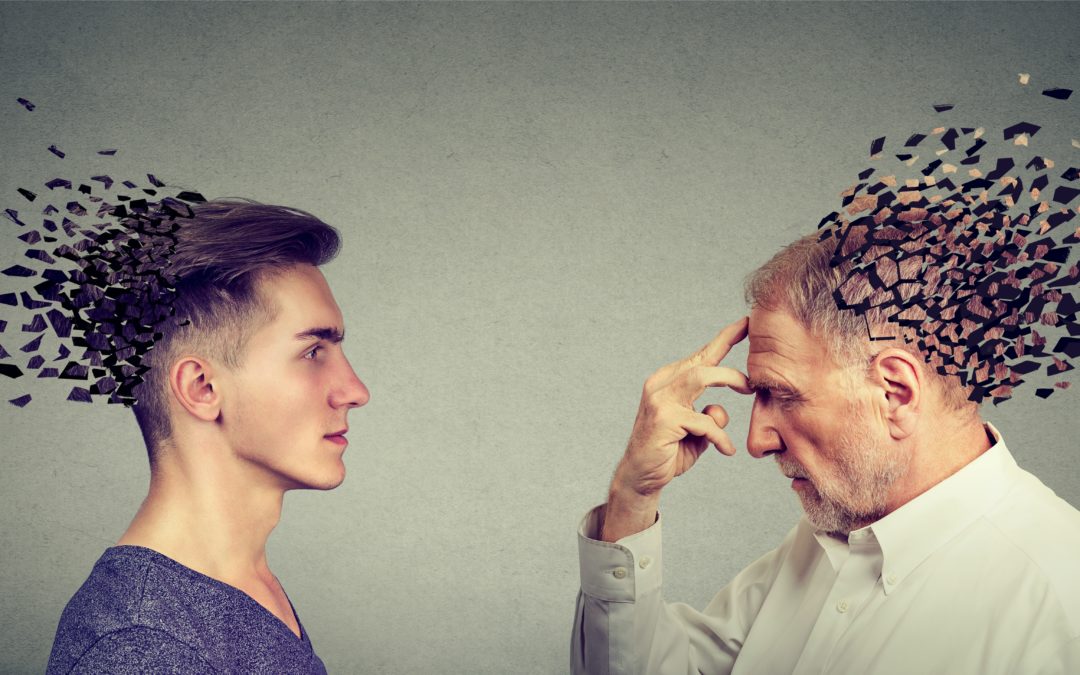
Quick Hits
Daily brief research updates from the cognitive sciences
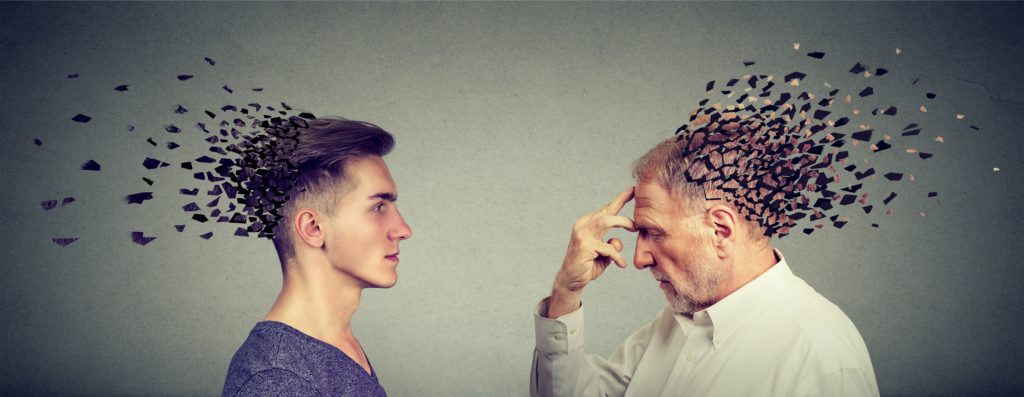
Who wouldn’t want to keep their memory when aging?!
Well, researchers have just announced some promising results in mice enabling them to keep their memories and avoid some of nasty neuro-degenerative aspects of Alzheimer’s.
What did they discover?
If you read the research and the press release, it gets technical and complicated very quickly, so let me translate this for you:
During aging we have more oxidative stress and accumulated stress over our lifetimes, this leads to various proteins, notably one called beta amyloid, building up in the brain. These clumps are resistant to removal and so end up continuing to build up over time contributing to multiple factors and particular impairing memory but in general decreased cognitive function.
The researchers around Adam Smith at the University of Kansas processed a protein from corn in the lab to produce an antigen which helps the immune system to clear out these clumped proteins in the brain. This is effectively a vaccination — mice injected with this showed greater short-term memory on lab tests (such as the clichéd maze tasks) but also on long-term memory. The markers for inflammation in the brain were also lower in blood samples.
The obvious question is would this translate to human beings? Because of the nature of the mechanism which is similar in human beings the researchers think it would but, obviously, this will need more research. But nevertheless very, very promising.
I’m waiting…

Andy is author of leading brains Review, Neuroleadership, and multiple other books. He has been intensively involved in writing and research into neuroleadership and is considered one of Europe’s leading experts. He is also a well-known public speaker speaking on the brain and human behaviour.
Andy is also a masters athlete (middle distance running) and competes regularly at international competitions (and holds a few national records in his age category).
Adam S. Smith, Kyle R. Gossman, Benjamin Dykstra, Fei Philip Gao, Jackob Moskovitz.
Protective Effects against the Development of Alzheimer’s Disease in an Animal Model through Active Immunization with Methionine-Sulfoxide Rich Protein Antigen.
Antioxidants, 2022; 11 (4): 775
DOI: 10.3390/antiox11040775
o, a simple cheap way to help your kids improve all life skills and strengthen mental wellbeing. Too good to be true? Well, this piece of research, just out, finds a fascinating correlation with mental health and kids. This correlation was...
editation can actually change your brain. "Oh, no it can’t!" say these researchers. "Oh, yes it can!" say a lot of other researchers. Does this start to sound confusing? Well, it does because there has been plenty of evidence that...
Quick HitsDaily brief research updates from the cognitive sciences ou may assume, logically at first glance, that not having contact to people is the most important factor in loneliness. And obviously this does have a large impact — but...
his study recently out analyses a fascinating episode in China at the start of the pandemic. A group of international musicians in Shenzhen produced a viral hit in China. This was a cover version of Michael Jackson's “you are not alone”...
usiness and executives in those businesses are more than keen to get a competitive advantage. To this end they invest heavily in technology and getting the right people to do the job. But, I am sure, we are all more than aware that the work...
Quick HitsDaily brief research updates from the cognitive sciences ho wouldn’t want to keep their memory when aging?! Well, researchers have just announced some promising results in mice enabling them to keep their memories and avoid some of...